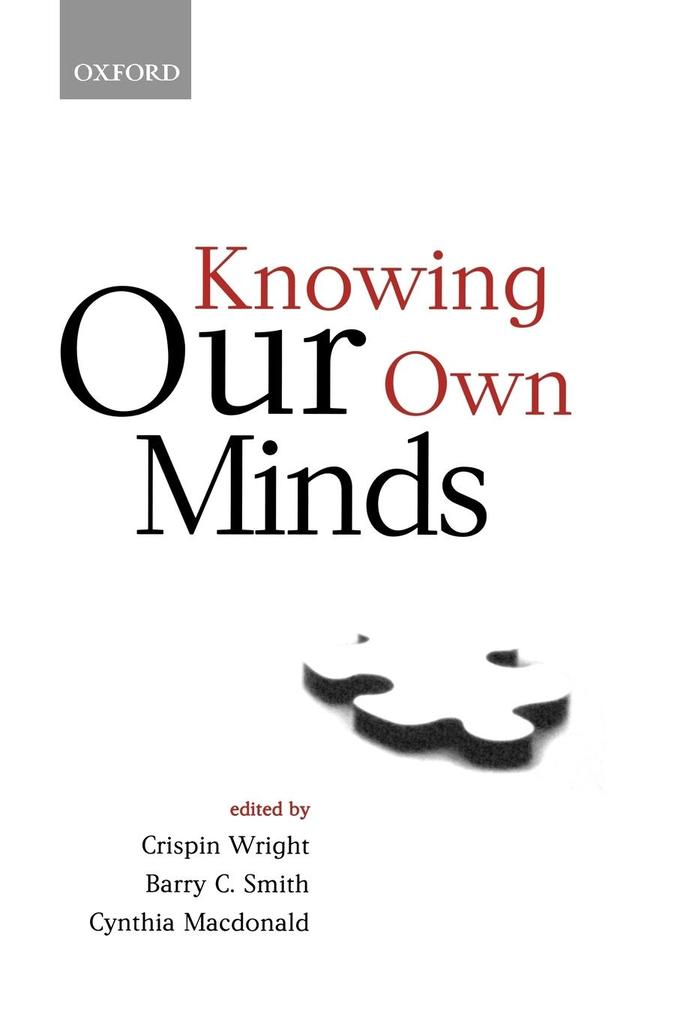
Zustellung: Sa, 19.07. - Mi, 23.07.
Versand in 5 Tagen
VersandkostenfreiBestellen & in Filiale abholen:
Knowledge of one's own sensations, desires, intentions, thoughts, beliefs, and other attitudes is characteristically different from other kinds of knowledge: it has greater immediacy, authority, and salience. This volume offers a powerful and comprehensive look at current work on this topic, featuring closely interlinked essays by leading figures in the field that examine philosophical questions raised by the distinctive character of self-knowledge, relating it to knowledge of other minds, to rationality and agency, externalist theories of psychological content, and knowledge of language.
Inhaltsverzeichnis
- Introduction
- 1: Crispin Wright: Self-Knowledge: The Wittgensteinian Legacy
- 2: John McDowell: Response to Crispin Wright
- 3: Christopher Peacocke: Conscious Attitudes, Attention, and Self-Knowledge
- 4: M. G. F. Martin: An Eye Directed Outward
- 5: Cynthia Macdonald: Externalism and Authoritative Self-Knowledge
- 6: Elizabeth Fricker: Self-Knowledge: Special Access versus Artefact of Grammar -- A Dichotomy Rejected
- 7: Akeel Bilgrami: Self-Knowledge and Resentment
- 8: Tyler Burge: Reason and the First Person
- 9: Paul A. Boghossian: What the Externalist can know A Priori
- 10: Brian P. McLaughlin and Michael Tye: Externalism, Twin Earth, and Self-Knowledge
- 11: Martin Davies: Externalism, Architecturalism, and Epistemic Warrant
- 12: Diana Raffman: First-Person Authority and the Internal Reality of Beliefs
- 13: Jim Edwards: The Simple Theory of Colour and the Transparency of Sense Experience
- 14: Barry C. Smith: On Knowing One's Own Language
- 15: James Higginbotham: On Knowing One's Own Language
- Index
Produktdetails
Erscheinungsdatum
19. Oktober 2000
Sprache
englisch
Seitenanzahl
464
Herausgegeben von
Barry C. Smith, Cynthia MacDonald, Crispin Wright
Verlag/Hersteller
Produktart
kartoniert
Gewicht
699 g
Größe (L/B/H)
234/156/25 mm
ISBN
9780199241408
Entdecken Sie mehr
Bewertungen
0 Bewertungen
Es wurden noch keine Bewertungen abgegeben. Schreiben Sie die erste Bewertung zu "Mind Association Occasional Series" und helfen Sie damit anderen bei der Kaufentscheidung.









